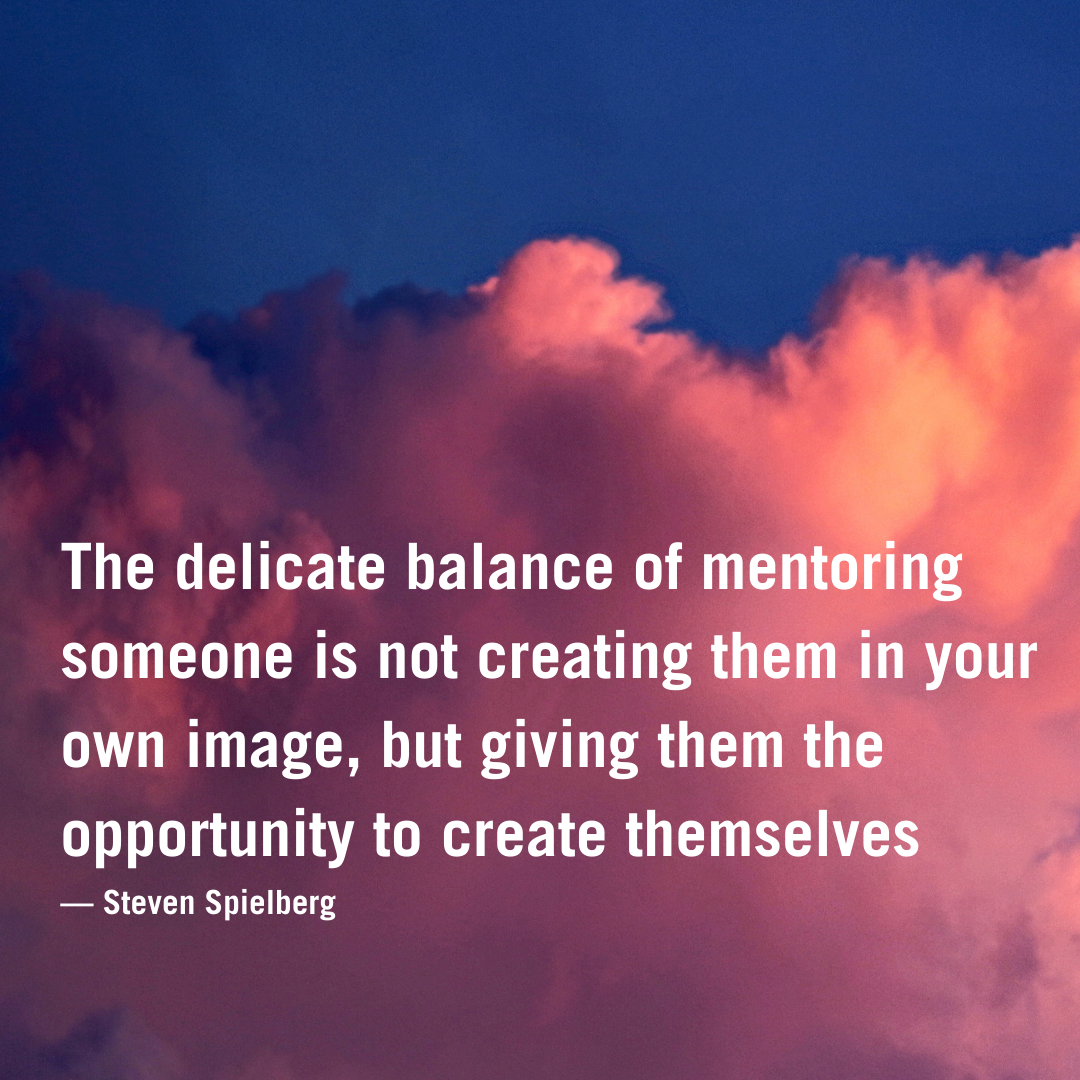5 non-negotiable skills you need to be a successful a mentor
I already briefly touched on the essence of mentorship in my last article, but today I want to talk about what it means to be a good mentor. A mentor-mentee relationship doesn’t have to follow a certain look or social constraint, in other words, a ‘successful? mentor-mentee relationship will look different depending on each pair. However, in any and every case, at the core, mentoring is about supporting others through advice and help.
The best mentors share some important qualities, so if you are looking to be a better mentor yourself, these qualities are worth noting. The mentoring skills discussed below are adapted from Linda Phillips-Jones book, The New Mentors & Prot?g’s: How to Succeed with the New Mentoring Partnerships.
Listen carefully first; problem solve much later
Undoubtedly, you’ve got a ton of experience and opinions you want to share, but you’re going to have to do more listening than talking in a mentoring relationship. When you listen well, you demonstrate to your mentee that their concerns have been heard and understood. As a result, they feel accepted by you, and trust builds.
To actively listen, ask probing questions such as: well, what do you think? In your opinion, what are the options? Have you considered this? What are the implications if you go this way? These types of questions are going to let you know, relatively quickly, exactly what your mentee understands about their field, and what you can brush up on and give advice on.
Build trust and be vulnerable
Can you think of a time at work when someone earned your trust, or when someone betrayed your trust? Trust is the foundation of most effective relationships. This is especially true for mentoring.
Trust is defined as being truthful, consistent, and transparent. In her work, Linda Phillips-Jones suggests to become trustable, you must:
- spend appropriate time together;
- follow through on your promises to them;
- respect your mentees? boundaries;
- admit your errors and take responsibility for correcting them; and
- tactfully tell your mentee if and why you disagree or are dissatisfied with something so they?ll know you’re honest with them.
Identify goals and current reality
As a mentor your job is simple, you must help a person take their thoughts and ideas and turn those into specific, finite, articulate goals for the future. Think long term, so the next 3 to 5 years, what are the two or three things your mentee really desires to accomplish?
It is important to consider the experiences, the markers or milestones and the skills to be developed in order to reach those goals. Think big and think long term. Take out a planner and map it out with your mentee, to get them started, think about the resources they need and think about the people they might need to meet. Consider introducing them to people that are going to get them on that path to reaching those goals.
Give good feedback
In addition to giving frequent and positive feedback, effective mentors should also be willing and able to give mentees corrective feedback.
Being a mentor is partially about being a great cheerleader, giving support and trying to encourage and build up your mentee’s confidence. However, a large part of being an effective mentor is also about giving difficult feedback – you know the elephant in the room type of stuff. Giving good feedback can be an incredibly uncomfortable experience for both you and your mentee, however, it is your role to challenge them and not allow them to slack off.
Inspire and motivate
As a mentor, one of the most important things you can do is be a source of motivation for your mentee. It’s important to be as human as possible, which is why personal stories can be impactful, as they are a great way to connect emotionally and help someone feel a little braver. You can help motivate your mentee by;
- Sharing your personal vision or those of other leaders;
- Describing experiences, mistakes, and successes you or others have encountered on the road to achieving your goals;
- Talking with him or her about people and events that have inspired and motivated you
If you possess these skills to an adequate level??and if you use them as frequently as called for?your chances of having mutually satisfying and productive mentoring relationships will be greatly enhanced. Linda Phillips-Jones explores additional skills mentors and mentees should develop so to successfully manage mentoring partnerships, so I suggest if you are about to embark on a mentoring journey you read her work.
What’s the number one skill you think every mentor needs?
